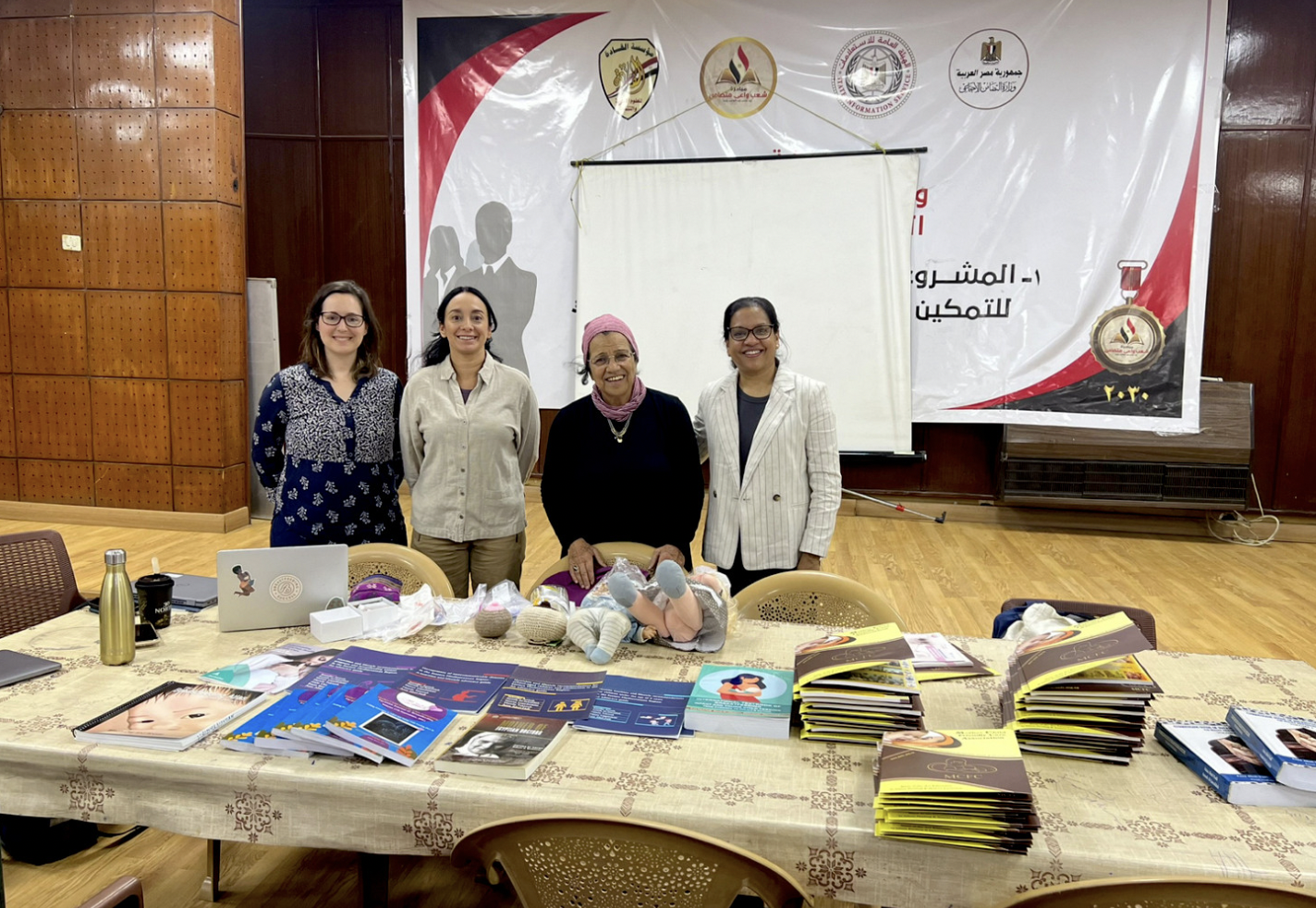Throughout human history, breastmilk has been proven to be the best source of nutrition for newborns and infants. As evidence shows, breastfeeding is extremely important for infants’ development and long-term health. According to Lakshmy Vaidyanathan, M.D., a board-certified pediatric hospitalist and certified lactation consultant with Pediatrix® Neonatology of Texas, the strongest predictor of breastfeeding success is an equitable and unbiased health care support system.
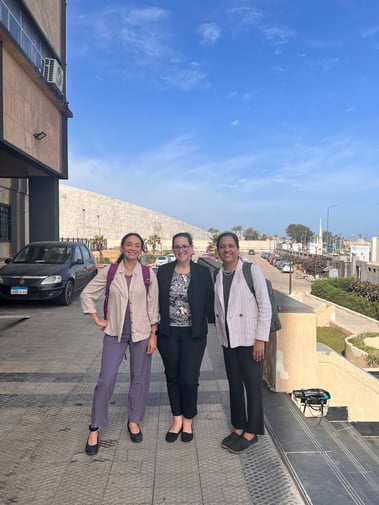 “Throughout my career, I have been passionate about breastfeeding education and was able to advance my knowledge in lactation medicine through active participation in the Academy of Breastfeeding Medicine,” said Dr. Vaidyanathan. “I became a certified lactation consultant in 2013. Since then, I have been providing breastfeeding education to my peers across Central Texas through lectures, workshops and conferences. That culminated in the academy electing me as a fellow of ABM.”
“Throughout my career, I have been passionate about breastfeeding education and was able to advance my knowledge in lactation medicine through active participation in the Academy of Breastfeeding Medicine,” said Dr. Vaidyanathan. “I became a certified lactation consultant in 2013. Since then, I have been providing breastfeeding education to my peers across Central Texas through lectures, workshops and conferences. That culminated in the academy electing me as a fellow of ABM.”
Dr. Vaidyanathan has served as a teaching faculty for the residency programs in Austin for the past 23 years. She provides hands-on training to her residents interested in general pediatrics or neonatology and aspires them to become knowledgeable about lactation and breastfeeding.
“Not all of the research and evidence we have on breastfeeding medicine is taught during residency training,” said Dr. Vaidyanathan. “One of my residents who is also deeply passionate about breastfeeding medicine suggested that we formalize breastfeeding and lactation education as part of our residency training. Subsequent collaboration with the hospital lactation consultants team and curriculum building resulted in the development of a breastfeeding medicine elective for third-year residents and above interested in breastfeeding and lactation medicine.”
The elective was so well received that Dr. Vaidyanathan was given the opportunity to conduct a workshop at the Academy of Breastfeeding Medicine’s annual meeting last year. More than 120 health professionals attended the workshop. Among them was Azza Abul-Fadl, M.D., professor of pediatrics at Benha University near Cairo, Egypt.
The workshop was exactly what Dr. Abul-Fadl had envisioned for her pediatric teams across several universities in Egypt. Therefore, she invited Dr. Vaidyanathan to Egypt as a guest educator. Dr. Vaidyanathan traveled to Egypt in May with Dr. Erica Ortiz, M.D., a neonatology fellow, and Lauren Reyes, an international board-certified lactation consultant and co-founder of Breastfeeding Success, to share their breastfeeding knowledge and provide hands-on training to pediatric and neonatal intensive care unit (NICU) medical professionals.
While in Egypt, Dr. Vaidyanathan and her team conducted workshops focusing on:
- Breastfeeding challenges and barriers for first-time parents
- Neonatal problems that require supplemental feeds
- Managing breastfeeding for babies with craniofacial malformations
- Supporting breastfeeding and breast milk feeding in the NICU
- Kangaroo mother care in the NICU
Breastfeeding Challenges and Barriers
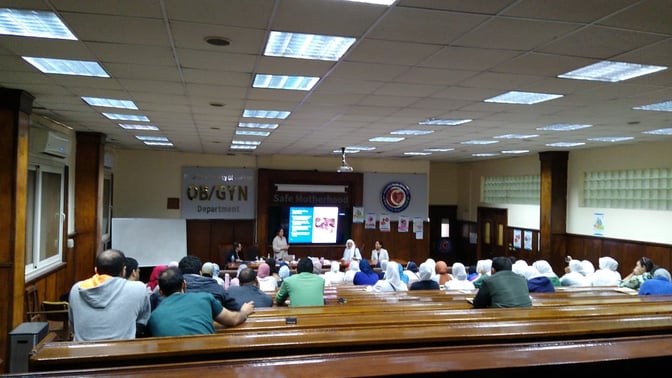 Dr. Vaidyanathan explained that numerous mothers worldwide, including in the United States, do not have equitable access to health care or are not fortunate to receive adequate prenatal care or breastfeeding education. Many women often do not have role models or support from family members as they go through their breastfeeding journeys and do not understand the social normalcy of breastfeeding. Others face many barriers in health care disparities, specifically minority women, women living in rural areas and those with low socioeconomic status.
Dr. Vaidyanathan explained that numerous mothers worldwide, including in the United States, do not have equitable access to health care or are not fortunate to receive adequate prenatal care or breastfeeding education. Many women often do not have role models or support from family members as they go through their breastfeeding journeys and do not understand the social normalcy of breastfeeding. Others face many barriers in health care disparities, specifically minority women, women living in rural areas and those with low socioeconomic status.
“As neonatal health providers, it is critical that we support every mother’s breastfeeding goals,” said Dr. Vaidyanathan. “Adequate prenatal breastfeeding education, specifically about the health benefits for not only the baby but also for the mother, will result in mothers feeling more confident in making informed decisions about their infants’ feedings.”
Mothers are advised to breastfeed upon giving birth, sometimes without the necessary education to prepare them for success.
“Often, we see first-time parents experiencing misperceptions of low milk supply and concerns about the ability of the baby to latch,” explained Dr. Vaidyanathan. “Our primary goal is to support mothers and babies during the ‘golden hour.’ Skin-to-skin and initiation of feeding as soon as possible after birth provides a much higher success rate for exclusive breastfeeding. When consulting with parents, it is particularly important to emphasize the benefits of exclusive breastfeeding, which means to only supplement with breast milk substitutes when there is a medical reason to do so.”
Neonates Requiring Supplemental Feeds
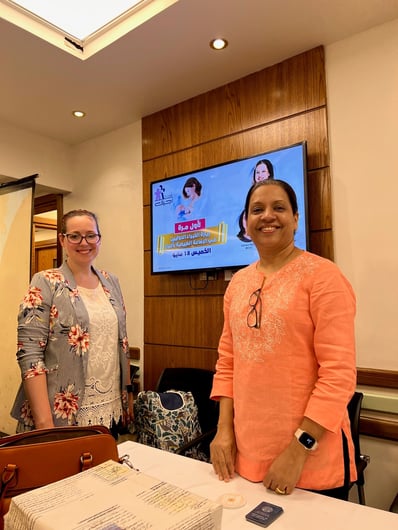 For various reasons, some mothers may not be available to breastfeed when their babies need to be fed, especially in the NICU. Therefore, these babies will require supplemental feeds.
For various reasons, some mothers may not be available to breastfeed when their babies need to be fed, especially in the NICU. Therefore, these babies will require supplemental feeds.
“The mother’s expressed breast milk will be the first choice, but if it’s not available, donor breast milk is recommended as the second best,” said Dr. Vaidyanathan. “Donor milk, when available, should be considered before formula.”
As a board member for Mothers’ Milk Bank at Austin, a part of the non-profit organization Human Milk Banking Association of North America (HMBANA), Dr. Vaidyanathan understands the benefits of donor milk over formula, when it is available. Dr. Vaidyanathan was instrumental in developing the Donor “Bridge” Milk program in well baby units at Ascension Seton family of hospitals in Central Texas.
“After the milk banks were set up, the necrotizing enterocolitis (NEC) rates in NICUs significantly declined; breast milk saves lives!” she said.
Interested mothers go through rigorous screening before they are approved to voluntarily donate their breast milk. The milk is processed, pasteurized, frozen and distributed to NICUs and newborn nurseries. Donor milk is used for premature and sick babies in the NICU in lieu of formula.
Even in the well baby nursery, there are medical reasons — such as hypoglycemia, excessive weight loss, babies with hyperbilirubinemia requiring phototherapy and late premature babies — for supplementing in addition to breastfeeding.
Educating hospitals and medical professionals about supplemental feeding protocols helps prepare them to manage situations when moms are not able to breastfeed or do not have enough milk supply. Dr. Vaidyanathan’s workshops and hands-on training enable hospital staff to be prepared in any circumstance to ensure babies receive proper nutrition.
While not all hospitals have access to donor breast milk, through awareness and education, more hospitals, especially those with NICUs, can receive donor milk so they can rely less on formula.
Managing Breastfeeding for Babies with Craniofacial Malformations
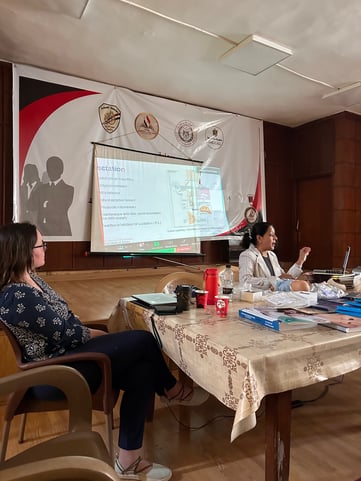 Another workshop led by Dr. Vaidyanathan while in Egypt addressed breastfeeding challenges for babies born with cleft lip, cleft palate, micrognathia and tongue-tie.
Another workshop led by Dr. Vaidyanathan while in Egypt addressed breastfeeding challenges for babies born with cleft lip, cleft palate, micrognathia and tongue-tie.
“Depending on the severity of the malformation, some babies won’t be able to latch on to the breast or sustain suction,” explained Dr. Vaidyanathan. “In these instances, we help mothers express their breast milk via a breast pump or hand expression, and we use bottles with special nipples that enable babies with physical challenges to effectively receive the milk. Our goal was to educate Egypt’s clinicians about ways these mothers could feed their babies breast milk rather than introducing formulas.”
Educating about identifying physical limitations and assessing if there is adequate transfer of breast milk is an integral part of Dr. Vaidyanathan’s workshops. She also teaches about the importance of helping mothers understand that even though their babies cannot receive milk directly from the breast, they can continue to pump or hand express their milk to feed their babies.
“We are very fortunate to have access to electric breast pumps in the United States as part of health insurance plans and the Affordable Care Act,” said Dr. Vaidyanathan. “But in Egypt and many other countries, breast pumps are not readily available and are unaffordable. Because of this barrier, many hospital NICUs must use formula for feeding. One of our future goals is to work with breast pump manufacturers to help provide electric or manual breast pumps in hospitals where access is limited.”
UNICEF Recognition
Dr. Abul-Fadl is a consultant at UNICEF, which provides humanitarian and developmental aid to children worldwide. On the last day of the workshops in Egypt, Dr. Vaidyanathan and her team members were awarded plaques from UNICEF in recognition of their educational initiatives in Egypt to promote and support breastfeeding.
“We were surprised and honored to be recognized by UNICEF,” said Dr. Vaidyanathan. “It was our privilege to educate physicians, clinicians, nurses, labor coaches and other members of the perinatal teams so they can learn from our experiences and implement new policies and practices in their hospitals. It was wonderful to feel the positive energy from everyone who attended our workshops, and receiving an award from UNICEF was an unexpected, much-appreciated recognition.”
Learn more about breastfeeding at:
Q&A: Breastfeeding Support During Your Baby’s NICU Stay
Breastfeeding After Breast Cancer
National Breastfeeding Month: Extended Breastfeeding Requires Additional Support
Breastfeeding Benefits for Preemies
Benefits of Breastfeeding Outweigh Potential Chemical Exposure
